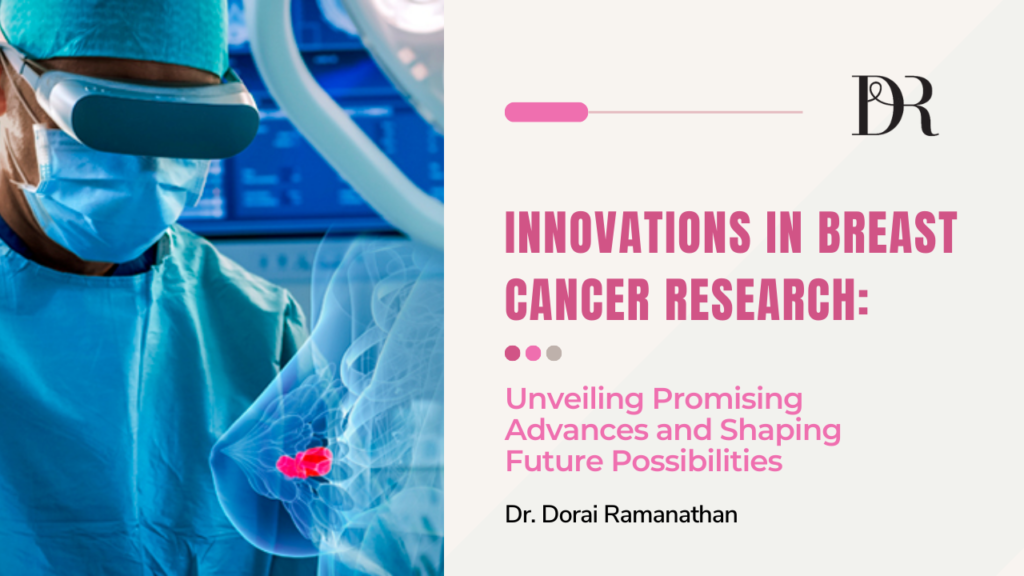
Breast cancer research continues to push the boundaries of medical science, with pioneering innovations paving the way for improved outcomes and better quality of life for patients. In this blog, we delve into the latest advancements in breast cancer research, highlighting promising breakthroughs and exploring the potential they hold for the future. As researchers and healthcare professionals collaborate to unravel the complexities of breast cancer, their efforts are propelling us toward a brighter horizon in the fight against this formidable disease.
The Power of Precision Medicine
One of the most transformative areas of breast cancer research is precision medicine, a personalized approach to treatment tailored to an individual’s unique genetic makeup. Advances in genomic testing have enabled researchers to identify specific genetic mutations and biomarkers associated with breast cancer. This precision approach allows healthcare providers to develop targeted therapies that hone in on the precise molecular drivers of a patient’s cancer, optimizing treatment outcomes while minimizing side effects.
Immunotherapy: Empowering the Body's Defenses
Immunotherapy has emerged as a groundbreaking approach in cancer treatment, including breast cancer. By harnessing the body’s immune system, immunotherapies work to recognize and attack cancer cells, bolstering the body’s natural defenses against the disease. Immunotherapy has shown remarkable promise in clinical trials, particularly in cases of triple-negative breast cancer, a subtype that has historically been challenging to treat.

Exploring New Horizons in Early Detection
Early detection remains a cornerstone in improving breast cancer outcomes. Innovations in imaging technologies, such as 3D mammography and breast MRI, have enhanced our ability to detect breast cancer at its earliest stages when treatment is most effective. Moreover, ongoing research in liquid biopsies and circulating tumor DNA (ctDNA) analysis holds the potential in revolutionizing non-invasive methods for detecting breast cancer and monitoring treatment responses.
Harnessing Artificial Intelligence (AI) for Precision Diagnostics
Artificial Intelligence (AI) is reshaping the landscape of breast cancer diagnostics and treatment planning. AI-powered algorithms can analyze vast amounts of medical data, assisting radiologists in detecting breast abnormalities with higher accuracy. Moreover, AI-driven tools are being developed to aid in predicting treatment responses and recurrence risks, empowering oncologists to make more informed decisions in tailoring treatment plans for individual patients.

The Future of Breast Cancer Research
As research and technology continue to advance, the future of breast cancer holds exciting possibilities. From personalized vaccines that target specific tumor antigens to nanotechnology-based drug delivery systems, ongoing studies are exploring innovative solutions to overcome treatment resistance and enhance treatment efficacy. Collaborative efforts between researchers, healthcare providers, and patient advocates fuel our progress in understanding breast cancer’s complexities and shaping the future landscape of breast cancer care.
Conclusion
Innovations in breast cancer research are fueling a sense of hope and optimism in the fight against this disease. Precision medicine, immunotherapy, advanced diagnostics, and AI-driven technologies are transforming the way we approach breast cancer treatment and detection. As we look towards the future, ongoing research, and collaborative efforts hold the promise of further advancements, leading us closer to a day when breast cancer becomes a manageable and ultimately curable condition. Together, let’s continue supporting breast cancer research and spreading awareness, as we work hand in hand to create a future free from the burdens of breast cancer.



